Scientists develop next-generation DNA barcoding for food traceability
29 Jun 2020Encapsulating fragile DNA barcodes into custom-made microbial spores creates a cheap and scalable tool for farm-to-fork traceability, say the Harvard scientists behind the research.
DNA barcoding allows scientists to identify particular species by comparing short genetic markers in the specimen DNA with reference sequences. For the food industry, its uses range from identifying food fraud to tracking the source of a foodborne illness outbreak.

However, DNA is fragile in nature and often does not withstand food processing conditions or changes in temperature. Conventional DNA barcoding is also expensive while decoding the barcodes often requires access to a laboratory and trained lab technicians, limiting its use for food manufacturers.
Scientists from Harvard Medical School say they have overcome this problem by encapsulating DNA barcodes in hardy but harmless microbial spores. This means the barcode can withstand supply chain conditions and ensure traceability from farm to fork, they said.
“Spores can survive in the wild for an extremely long time and are a great medium for us to incorporate DNA barcodes into,” said study co-author Jason Qian, a graduate student in systems biology at HMS.
The scientists added the custom-made DNA sequences into the genomes of two microorganism spores - Saccharomyces cerevisiae, also known as baker’s yeast, and Bacillus subtilis, a common bacterium available in the US for various uses, including as a dietary probiotic, soil inoculant and fermentation culture. Both of these microorganisms can be grown cheaply in the lab in large numbers.
The study, which was published in Science this month, describes how the researchers sprayed the DNA-barcoded microbial system onto crops and then correctly identified the DNA months later using simple and inexpensive equipment such as a smartphone camera. The DNA barcodes can be read using an inexpensive CRISPR-based tool that can detect the presence of a genetic target rapidly and with high sensitivity called SHERLOCK.
Michael Springer, study co-author and associate professor of systems biology at Harvard Medical School’s Blavatnik Institute, described microbial spores as “an old-school solution” that have been safely used on food produce and agricultural goods as soil inoculants or biological pesticides for decades.
The spores used in this study were edited to delete the genes needed to germinate, making them biologically inert so they could not multiply, grow and spread in the wild.
Food safety
The researchers suggested food producers could use the method to track the origin of contaminated food.
“Outbreaks of harmful foodborne pathogens such as listeria, salmonella and E. coli occur naturally and frequently,” said Springer. “Simple, safe synthetic biology tools and knowledge of basic biology allow us to create things that have a lot of potential in solving real world safety issues.”
In the US alone, an estimated 48 million Americans fall ill from foodborne illnesses each year, resulting in 3,000 deaths, according to the US Centers for Disease Control and Prevention (CDC).
Food recalls can cost millions and hundreds of manufacturers are affected each year in the US alone. In 2019, the FDA oversaw 517 food recalls while the number of dangerous ‘class I’ meat and poultry recalls increased by 85% between 2013 and 2019, according to a 2020 report by the US public interest watchdog, US PIRG, called How Safe is Our Food?
“Food recalls can provide insight into the health of our food safety infrastructure. Each recall is an instance when the system failed to prevent contamination, putting people’s health at risk,” the report authors wrote.
Related news

Plastic packaging reduction requires industry rethink
6 Jan 2023
The food and beverage sector is calling for industry-wide collaboration and business model updates to reduce the environmental impact of plastic packaging.
Read more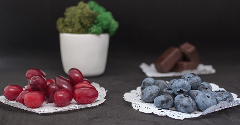
Misleading nutrition claims mask true sugar levels in baby food
5 Jan 2023
Some baby and toddler food and drink products, sweetened with fruit concentrate, contain up to four teaspoons of sugar per serving yet are marketed as having ‘no added sugar’, according to a survey by Action on Sugar.
Read more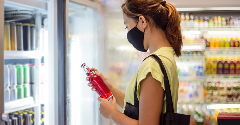
Asian beverage brands deal with rising costs
4 Jan 2023
Decreasing bottle sizes or increasing prices? Asian beverage brands are finding “creative approaches” to manage rising costs, according to industry analysts.
Read more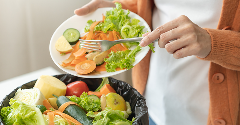
Preserving the freshness of food to fight waste
3 Jan 2023
Several companies are producing products that absorb ethylene, the hormone that causes food to ripen, in attempt to reduce food waste.
Read more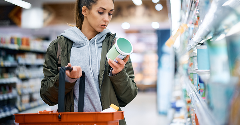
Value-seeking US consumers cut back on food spending
2 Jan 2023
Cheaper items, smaller sizes, and shorter grocery lists: inflationary effects coupled with a global long-term recession are set to continue shaping food spending habits, according to a recent Rabobank report.
Read more
Opportunities grow for lower-caffeine coffee
23 Dec 2022
Many consumers want the mental focus of caffeine without the jitters, prompting a wave of product development such as “half caffeine” ground coffee or ready-to-drink (RTD) cold brew blended with relaxing botanicals.
Read more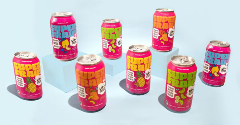
Superfrau upcycles liquid whey for energy drinks
22 Dec 2022
US company Superfrau turns surplus whey into sustainable, upcycled-certified dairy products for the recovery drinks market.
Read more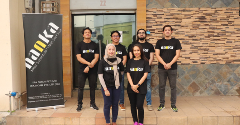
Malaysian brand Nanka brings jackfruit range to Europe
21 Dec 2022
Malaysian brand Nanka is expanding to new Asian and European markets with its fast and ready-to-eat plant-based products based on jackfruit.
Read more
Is the UK on target to meet its 2025 Plastics Pact?
20 Dec 2022
Major food industry players, including Arla, Kerry, PepsiCo and TerraCycle, have signed the UK’s voluntary Plastic Pact to reduce plastic from the supply chain – but are they on track to meet their targets?
Read more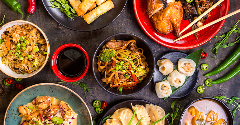
Chinese food brand wants to give customers ‘the full experience’
16 Dec 2022
Food brand Xiao Chi Jie is revamping Chinese cuisine for the modern American consumer. The Washington-based company sells regional Chinese specialties like soup dumplings, noodle kits, and barbeque skewers direct-to-consumer in the US.
Read more